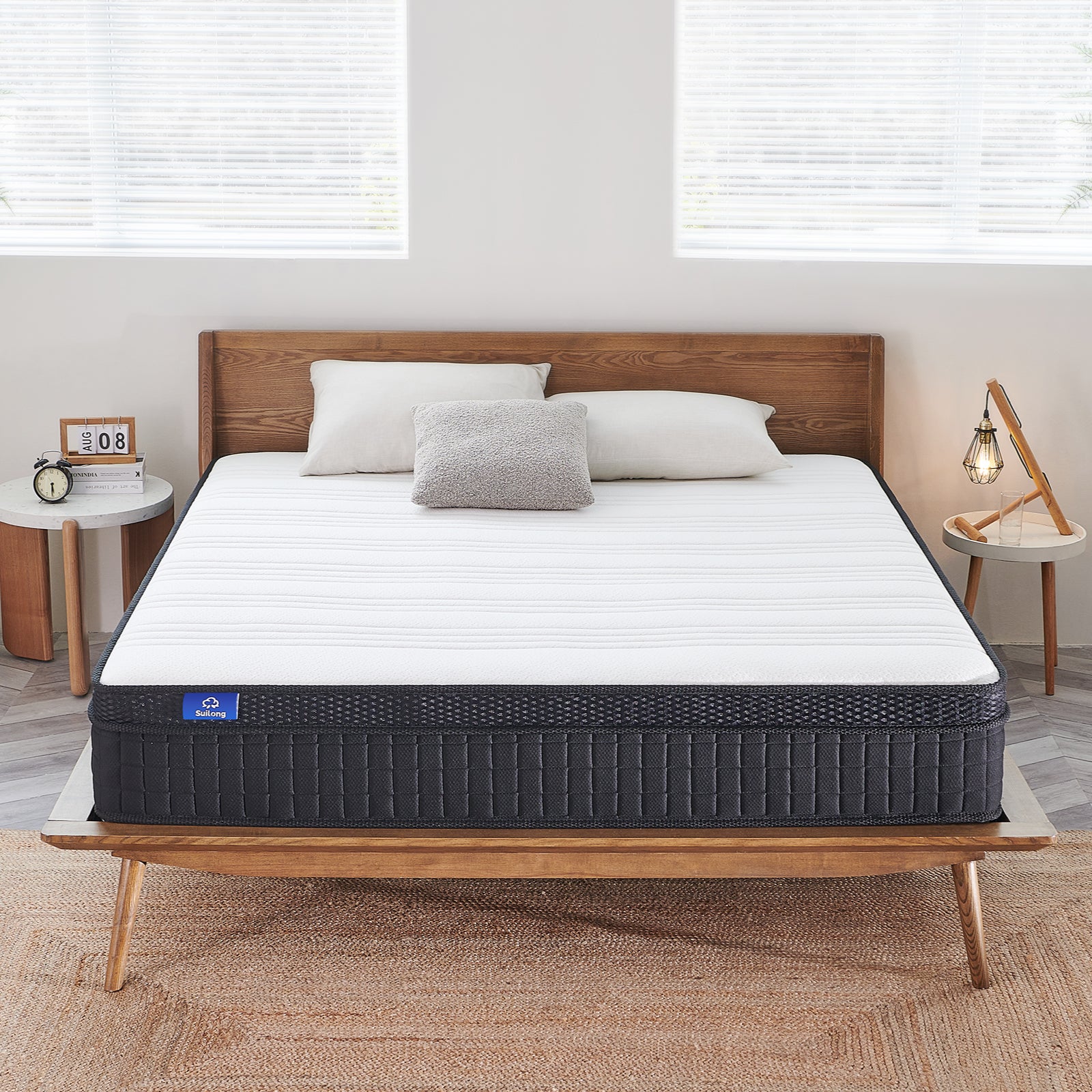Sleeping on Your Stomach: Risks, Tips, and Best Mattresses

Everyone longs for a good night's sleep, but did you know that your sleeping position could be one of the reasons you wake up with pain or discomfort? Is sleeping on your tummy, a sleep position favoured by many but also controversial, really good for your health? It's not just about comfort; there are far-reaching health implications involved. Let's delve into the mysteries of sleeping on your back and see how it affects our bodies and our health.
1. Popularity and controversy of supine sleep
Of the many sleep positions, supine sleep is a fairly common choice. What many people may not realise is that it is not only linked to our comfort, but is also closely related to certain health factors.
Sleeping on your back: people's natural inclination
Many people choose to lie on their backs probably because it releases pressure on the spine, reduces back pain and somehow avoids facial wrinkles as well.
Is lying on your back really beneficial?
Although some people believe it is the most natural position for sleeping, prolonged lying on your back may increase stress on your neck and back, especially if not properly supported.

2. Changes in the body when lying on the back
When we lie on our backs, many parts of the body change, which may affect our health and comfort.
Stress on the spine
Lying on your back can lead to changes in the curve of the spine, especially in the lower back, which can lead to pressure on the intervertebral discs.
How breathing is affected
Breathing may become difficult due to the weight of the chest and lungs. In addition, lying on your back for long periods of time may lead to a build-up of water in your lungs.
Your facial skin
Lying on your back may lead to pressure on your facial skin, which may produce wrinkles and indentations over time.

3. Effects of lying on your back while pregnant
During pregnancy, the body goes through many changes and lying on your back may affect both the mother and the foetus.
Potential risks to the foetus
As a pregnant woman gains weight, prolonged lying on her back may compress the uterus and lead to insufficient blood supply to the foetus.
Comfort of the pregnant woman herself
The increasing size of the foetus may lead to more pressure on the back, making lying on the back less comfortable.
4. Should you change your sleeping position?
Considering some of the possible problems associated with lying on your back, should we consider changing it?
Potential risks of lying on your back
Prolonged lying on your back, especially without proper support, may lead to neck and back pain, and may even lead to herniated discs in the lumbar spine.
Adjustments can bring benefits
Changing to a suitable sleeping position, such as lying on your side, can reduce pressure on the spine and neck and provide better breathing and blood circulation.
5. Advice on how to optimise supine lying
Despite the risks associated with sleeping on your back, you can still enjoy this sleep position by following a few suggestions.
- Choose the right pillow
Pillows that are too high or too low may increase the pressure on the neck. Choosing a pillow that provides proper support for your neck is key.
- Use a high quality mattress
Suilong mattresses are ergonomically designed to ensure optimum support for sleepers lying on their backs.
- Adjust your body position
Slightly adjusting the body so that the lower back is properly supported can effectively reduce pressure on the spine.

6. When to seek professional advice
There are times when we need to take expert advice.
Persistent discomfort
If you have tried to change your sleeping position but still feel uncomfortable, you may need to seek professional help.
Other symptoms
If you often wake up feeling numbness in your hands or pain in your back, this may suggest the presence of other health problems.
It's vital for anyone to ensure they get a healthy sleep environment. Regardless of the sleeping position you choose, the most important thing is to make sure your body is properly supported and comfortable. Consider investing in a high-quality mattress and pillow that focuses on ergonomics like Suilong can help you achieve this goal. Remember, everyone's body is unique and the best way to find the best sleep solution for you is to listen to your body.
https://suilong.org/products/suilong-galaxy-14-inch-luxury-hybrid-mattress
FAQs
Q: What is the best thing for stomach sleepers?
A: The best thing for stomach sleepers is a firm mattress that provides adequate support to the spine and prevents the back from arching too much. It's also beneficial to use a thin pillow or no pillow at all to ensure the neck remains aligned with the spine.
Q: How do I stop being a stomach sleeper?
A: To transition away from being a stomach sleeper, you can try the following strategies:
Use a body pillow: Hug it or place it behind you to prevent rolling onto your stomach.
Adjust pillow height: A thicker pillow can make stomach sleeping uncomfortable, prompting a position change.
Create a barrier: Using pillows to build a wall on one side can stop you from turning onto your stomach.
Be patient: Changing sleeping positions can take time, so give yourself a few weeks to adjust.
Q: What is the personality of a stomach sleeper?
A: While sleep positions might offer some insights, they don't definitively dictate personality. However, some sleep researchers and psychologists suggest that stomach sleepers tend to be more open-minded, social, and sometimes feel out of control in their life situations. They can also be slightly more sensitive to criticism.
Q: Do stomach sleepers need soft or firm mattress?
A: Stomach sleepers generally benefit more from a firmer mattress. A firmer surface prevents the pelvis from sinking too deeply into the mattress, which can cause an overarched spine and lead to back pain. While some softness can provide comfort, it's essential that the mattress offers consistent support for the body's core.
Q: What type of mattress is best for a stomach and side sleeper?
A: For someone who switches between stomach and side sleeping, a medium-firm mattress is often ideal. This type offers the firmness stomach sleepers need to keep their spine aligned while providing the contouring and pressure relief that side sleepers appreciate, especially around the shoulder and hip areas. Hybrid mattresses, which combine innerspring coils with foam layers, can be a suitable choice for these combination sleepers.
-
Posted in
Buyer's Guide, Lifestyle, Mattress Buying Guide, Shopping Tips, Side Sleepers, Sleep Experts, sleep position, Sleep Tips, sleeping positions
















